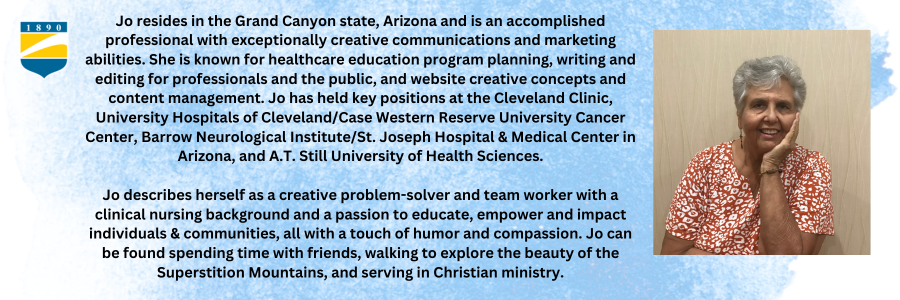6 Considerations About the Daily Life of Pharmacy Technicians
Are you thinking about a career as a certified pharmacy technician (CPhT)? The good news is that according to the National Pharmacy Technician Association, the projected outlook for pharmacy technician jobs is estimated to be seven percent through 2028 with more than 37,000 annual job openings available.
The average annual salary for a pharmacy technician is variable, ranging from $23,000 to $50,000 depending on the industry that you work in and in what geographic location.
1. It’s All in a Day’s Work
Pharmacy technicians are a vital part of the healthcare team, whether working in a retail pharmacy, general retail store, hospital, or outpatient clinic. But what services does a pharmacy tech actually provide? And what can you expect your daily work to involve?
The majority of a pharmacy technician’s time is spent assisting a licensed pharmacist and customers in managing prescription requests and refills. These tasks involve regularly answering questions or providing explanations in person or on the phone, so a basic knowledge of medical terminology, pharmacology, and insurance billing is needed. Other job responsibilities include preparing prescription bottle labels and filling prescription bottles as ordered. Filling prescriptions at the direction of the pharmacist and the physician’s order requires counting and recording medications dispensed. Obviously, the accuracy and certification of the orders are of utmost priority.
Throughout the day, pharmacy technicians also assist the pharmacist with administrative tasks including keeping track of medication inventory, keeping medications secure, and at times performing basic pharmacy calculations. Basic math skills are needed regarding the calculation of dosages and concentrations when dispensing medications that may include intravenous medications, and at times compounding, and mixing medications. The pharmacist will do most of the calculations, but you will be required to do some basic calculations as well.
Computer skills are absolutely essential since you will be working with computer software programs daily to enter customer/patient information, check online drug formularies, verify insurance coverage for medications, and check the pricing of both prescription and over-the-counter (OTC) drugs.
Essentially, you can expect that most days as a pharmacy tech will require you to be an individual who is organized and able to multitask.
2. Think Outside the Box to Advance Your Career
Although most pharmacy technicians work in pharmacies, general merchandising stores, or hospitals and clinics, there are career opportunities in the insurance industry, pharmaceutical warehouses or companies, government health agencies, and even drug software companies.
In fact, the U.S. Bureau of Labor Statistics cites some of the highest-paying pharmacy technician jobs in those work areas.
Advanced certification in sterile compounding, hazardous compounding, and non-sterile compounding is also available. To be credentialed as an advanced certified pharmacy technician (CPhTAdv) a pharmacy tech must hold a CPhT, have worked for a minimum of three years within the past eight years as a pharmacy technician, and have completed “at least four Pharmacy Technician Certification Board Assessment-Based Certificate Programs, or three Certificate Programs and the Compounded Sterile Preparation Technician® (CSPT®) Certification”.
3. The Importance of Knowing Medical Terminology and Drug information
A large part of a pharmacy technician’s daily responsibilities involves interacting with the pharmacist or physician, assisting patients with locating OTC medications, and answering basic questions regarding how to take prescribed drugs or OTC medications—including the dosage, how often to take the drug, and how to use the medication. You will also be referring patients to the pharmacist to discuss drug information, interactions with other medications, and other health-related matters.
Accordingly, it is critical that you have basic knowledge of formulary drugs, why the drug is being prescribed, and prescribing notation to be able to look up information effectively and quickly for yourself, the customer/patient, or the pharmacist.
4. Did You Really Hear What I Said?
On your job as a pharmacy technician, you will be working with pharmacists, physicians, nurses, and other healthcare team members but also customers/patients. Listening and understanding communication skills, safety awareness, and using good judgment are a part of your everyday practice.
5. It’s Not Always the Good Life
Although a certified pharmacy technician career offers many opportunities, there are some downsides of the daily job that are important to know.
Working hours are usually routine schedules, but staffing shortages can sometimes require you to work overtime, making for a long and tiring day. The job is fast-paced and stressful, especially with the volume of prescriptions that need filling or refill requests, making sure the medication count being dispensed is correct, recording medications accurately, and verifying medical and prescription insurance. And all of these can happen simultaneously while you are answering phone inquiries and servicing the counter at retail pharmacies, general retail stores, or outpatient clinics. The day can include a series of constant interruptions that can add to stress levels.
6. Tune into You
To manage work-related stress as a pharmacy technician, it is important that you have a plan for work-life balance. Not making a livable work-life balance plan a priority can put you on a path to career burnout.
Make sure that you take personal time for yourself. Plan a vacation, exercise routinely, eat healthy foods, get enough rest, and make time for enjoyment with friends and family.
Your commitment to establishing a work-life balance in your pharmacy technician career can develop a resilient you for the long term and enhance making your time at work more enjoyable.














